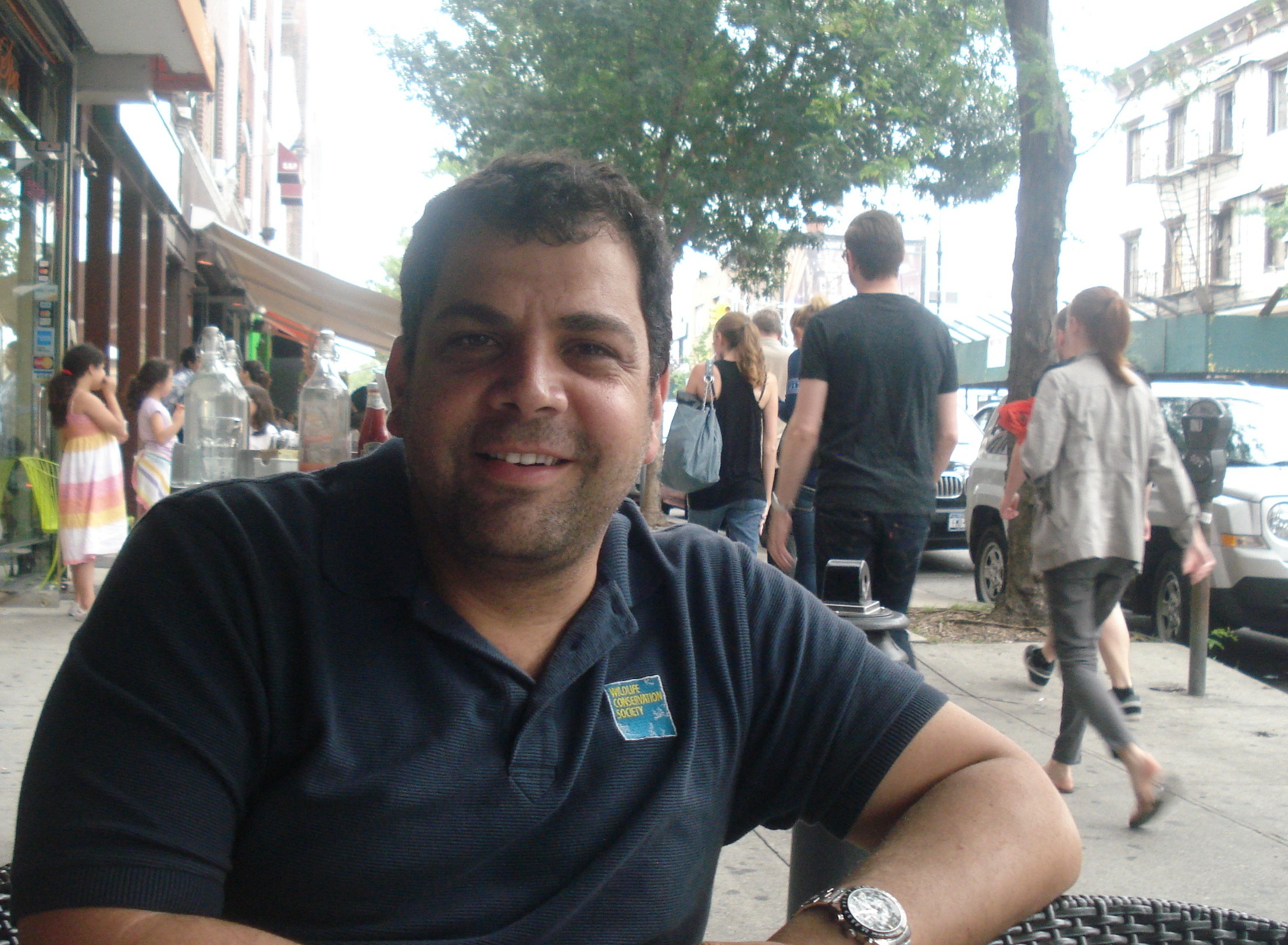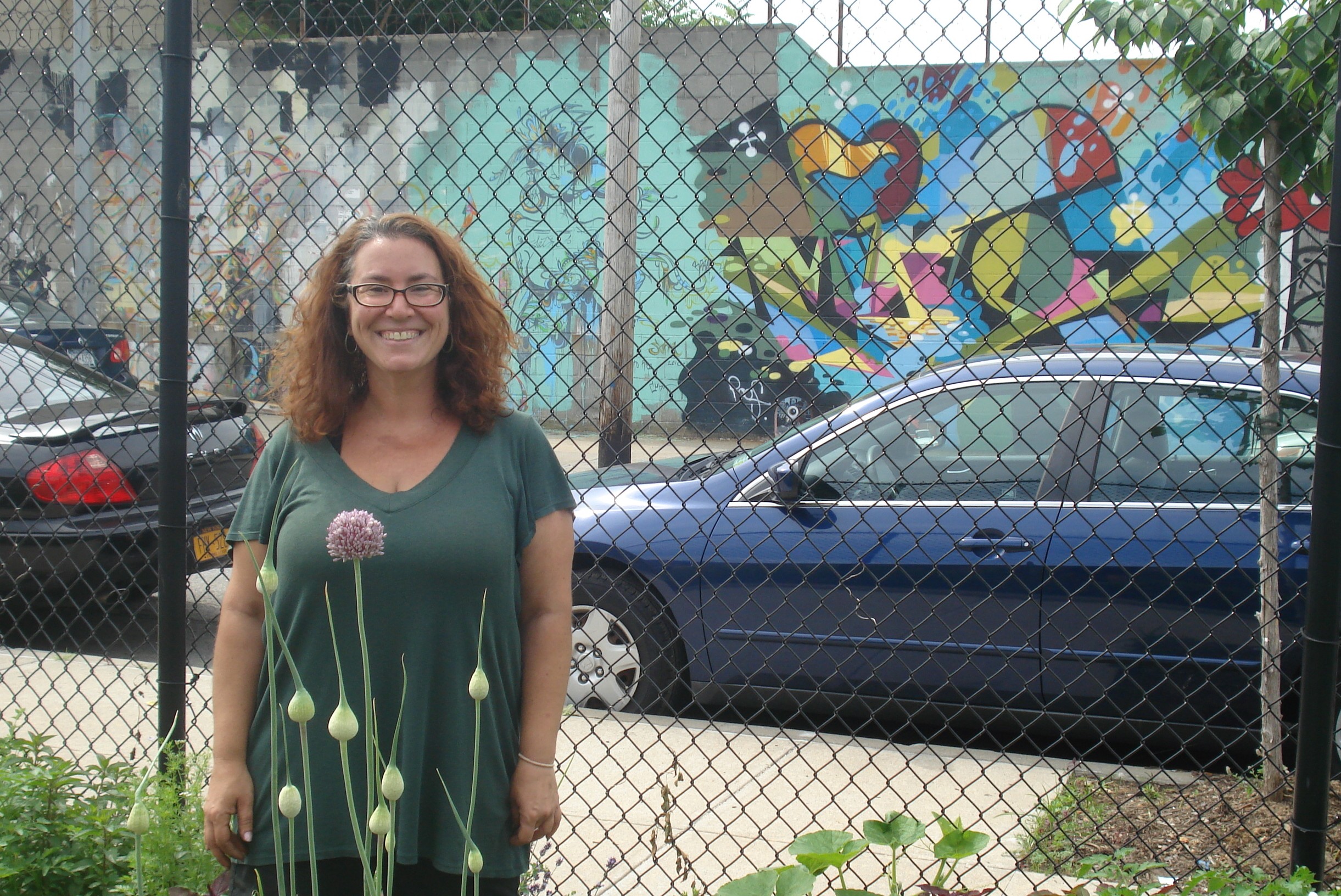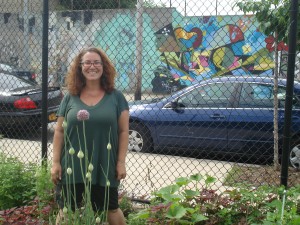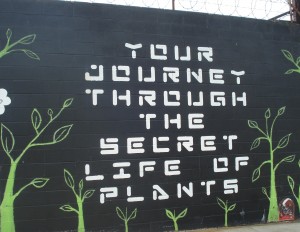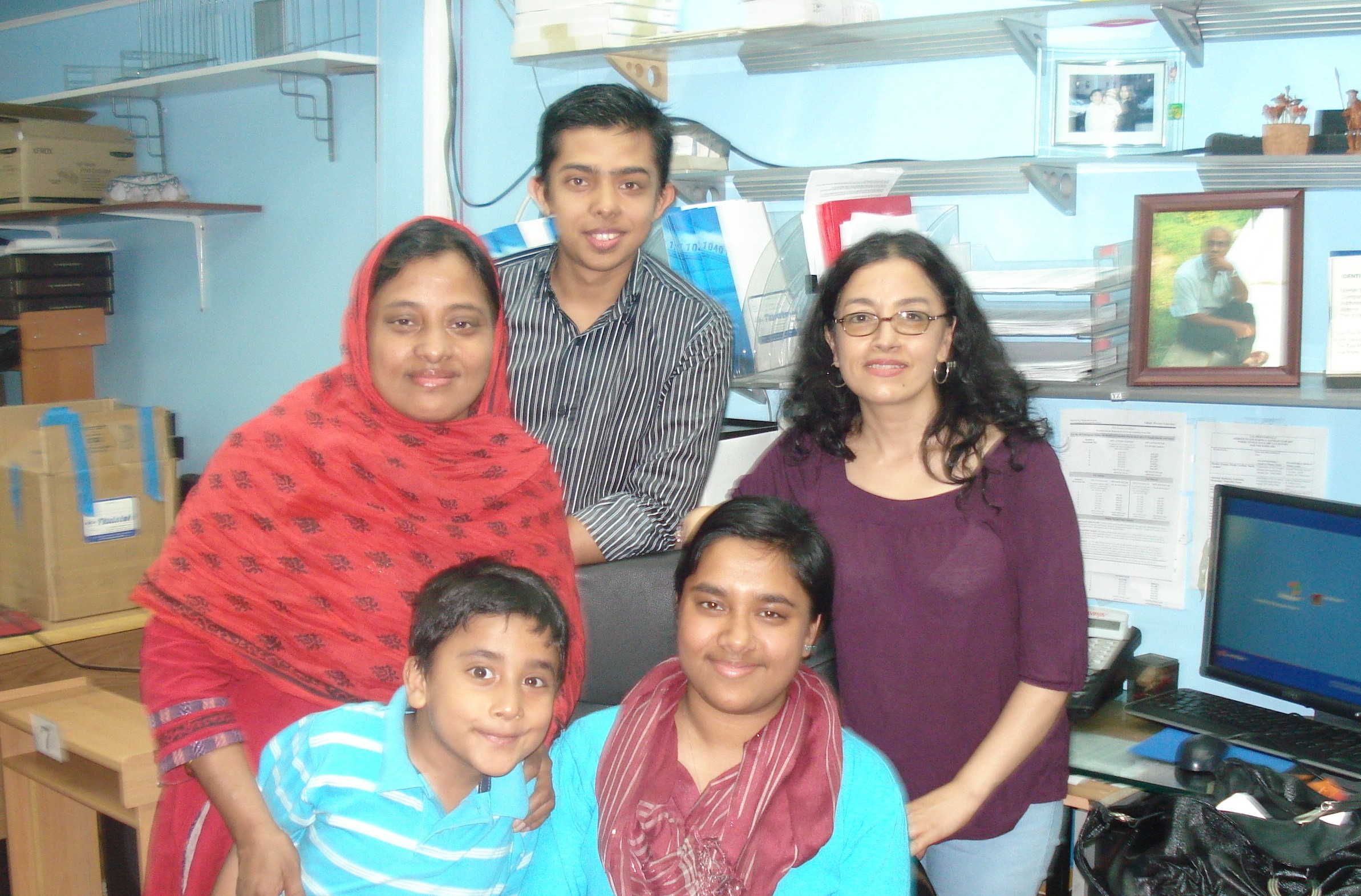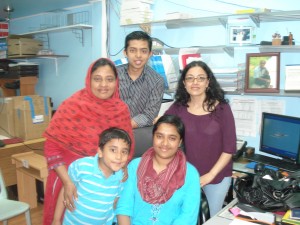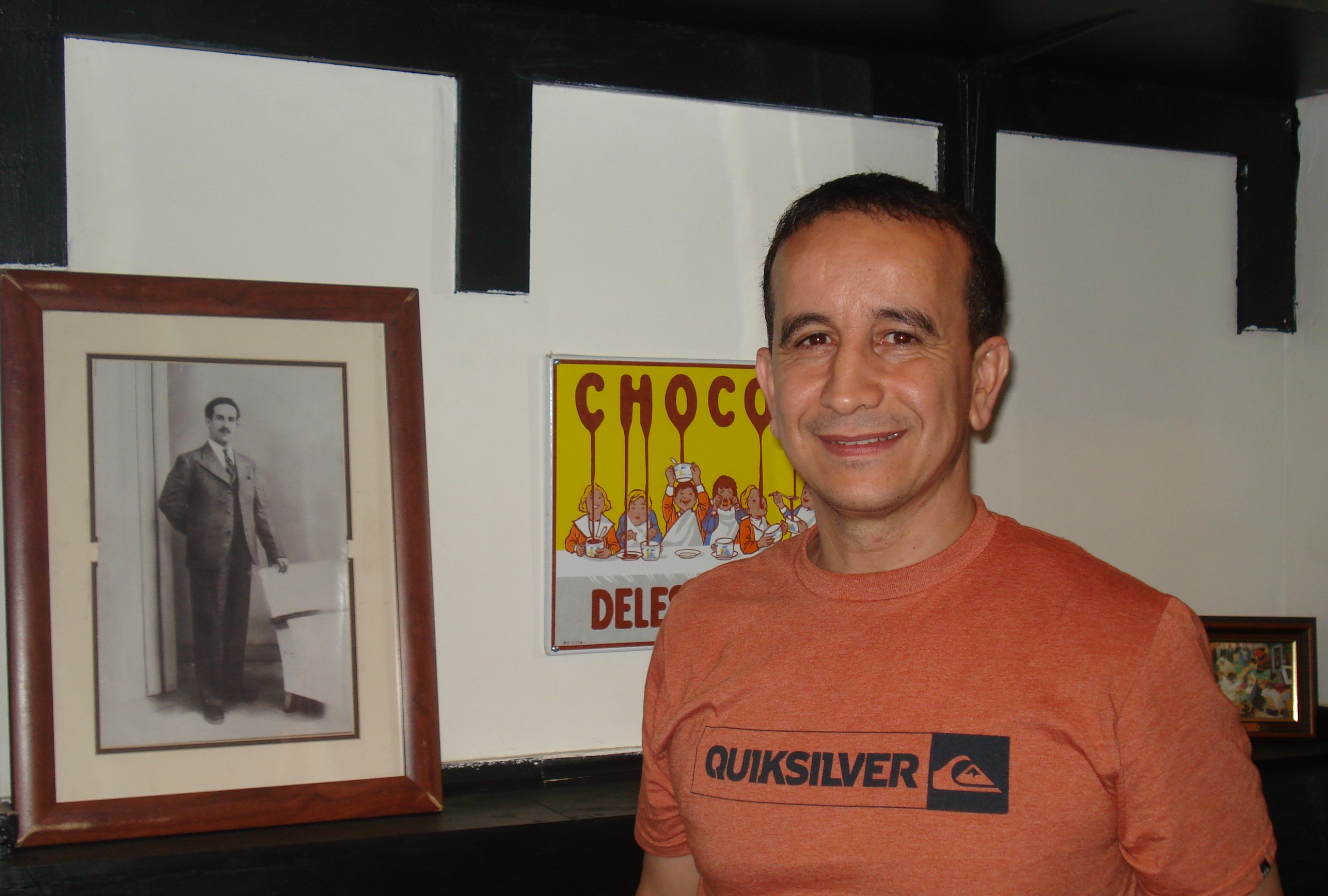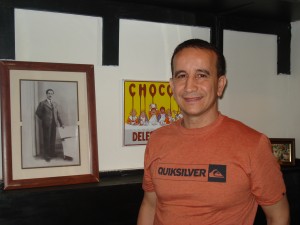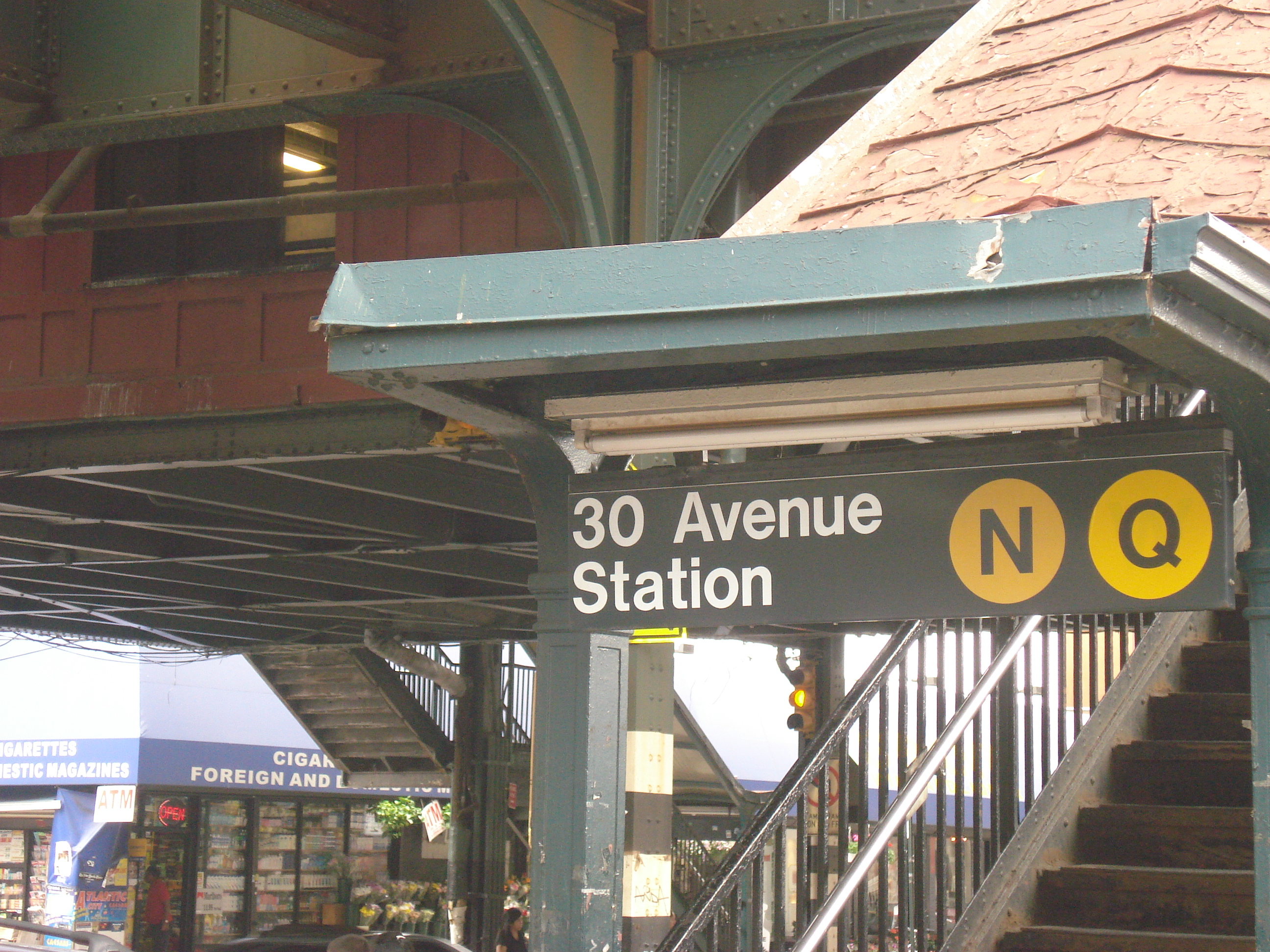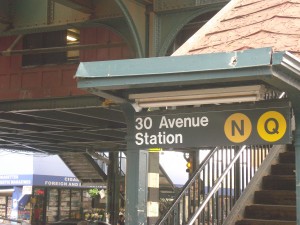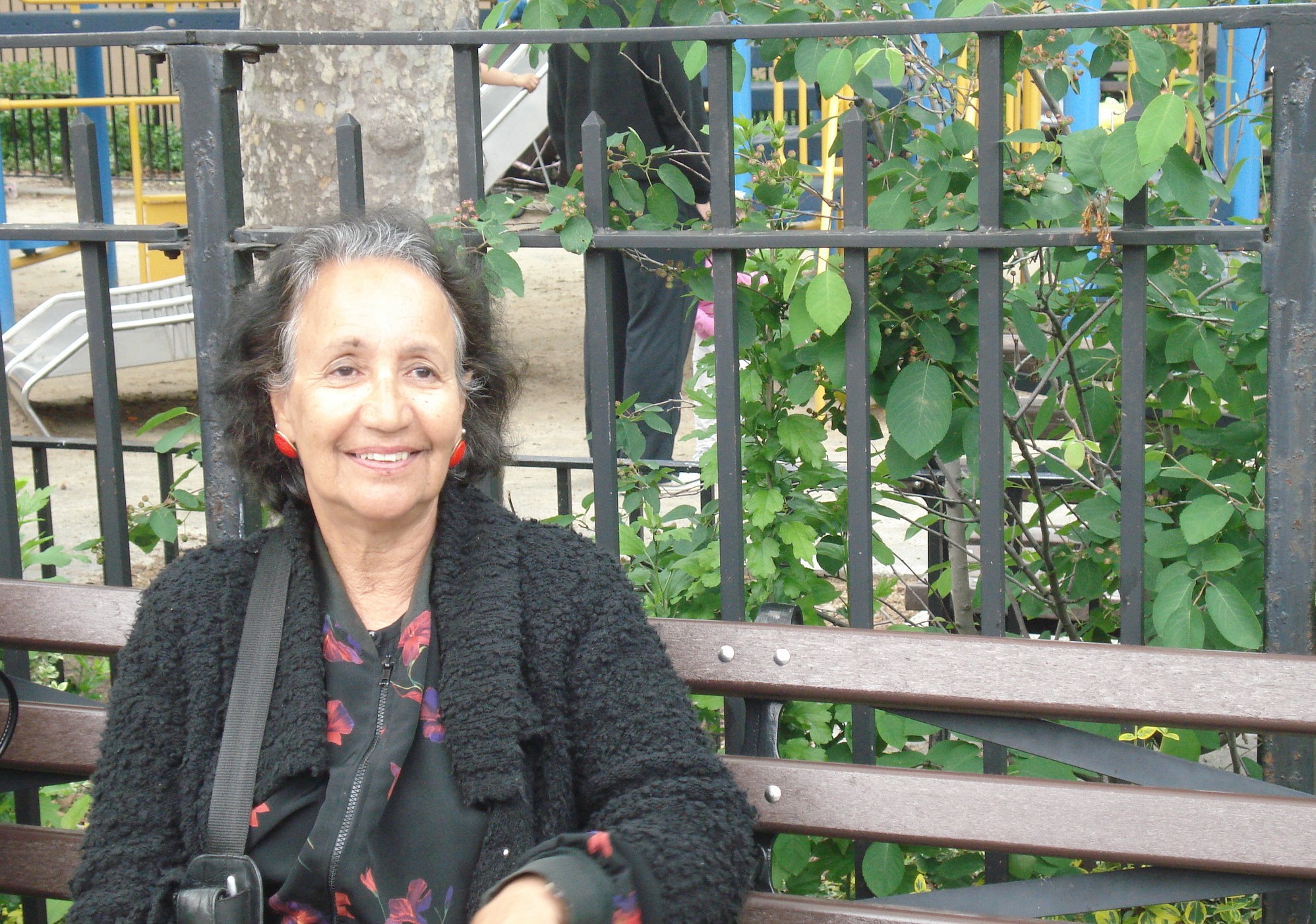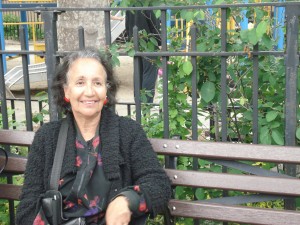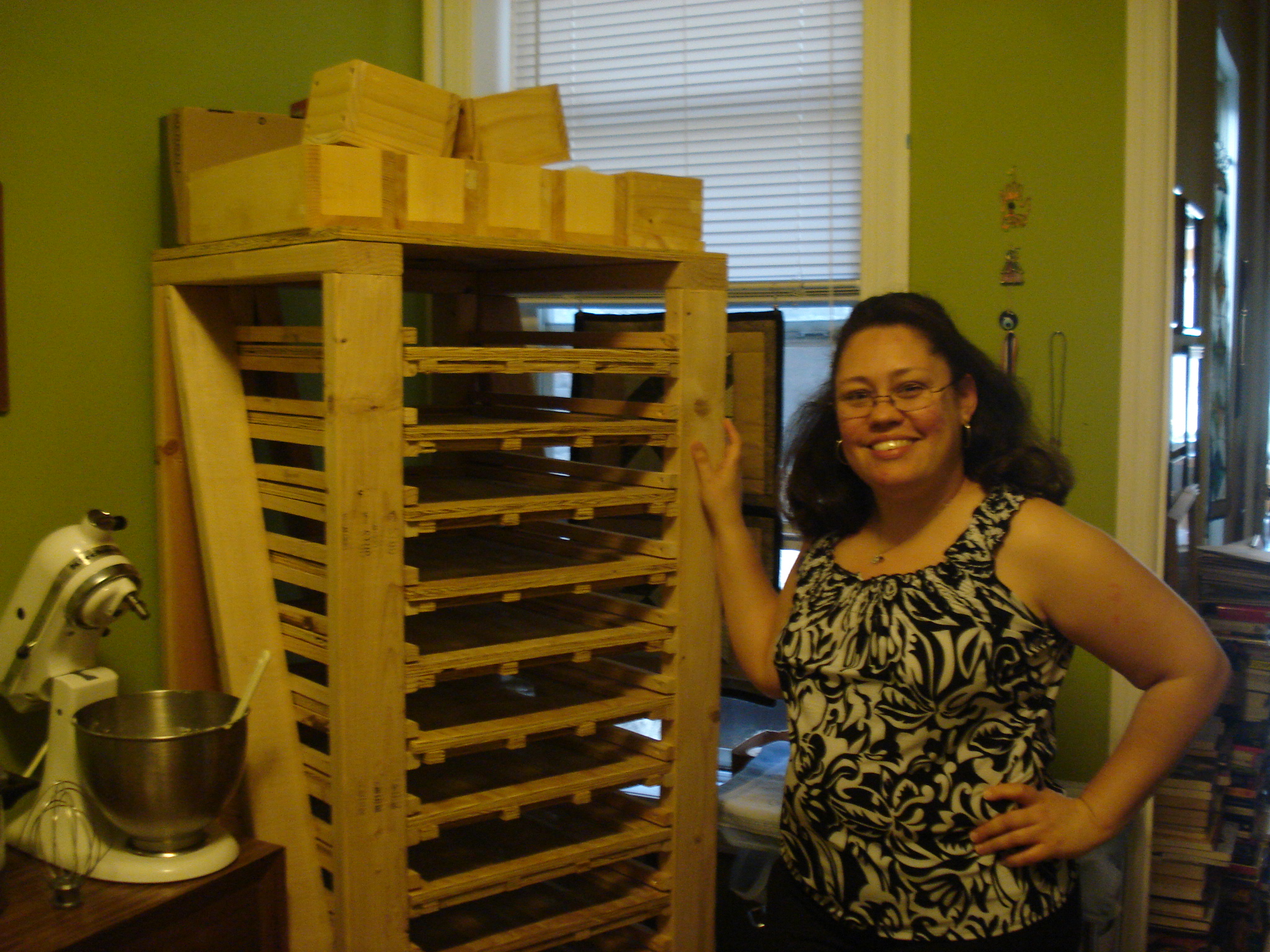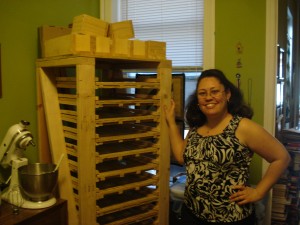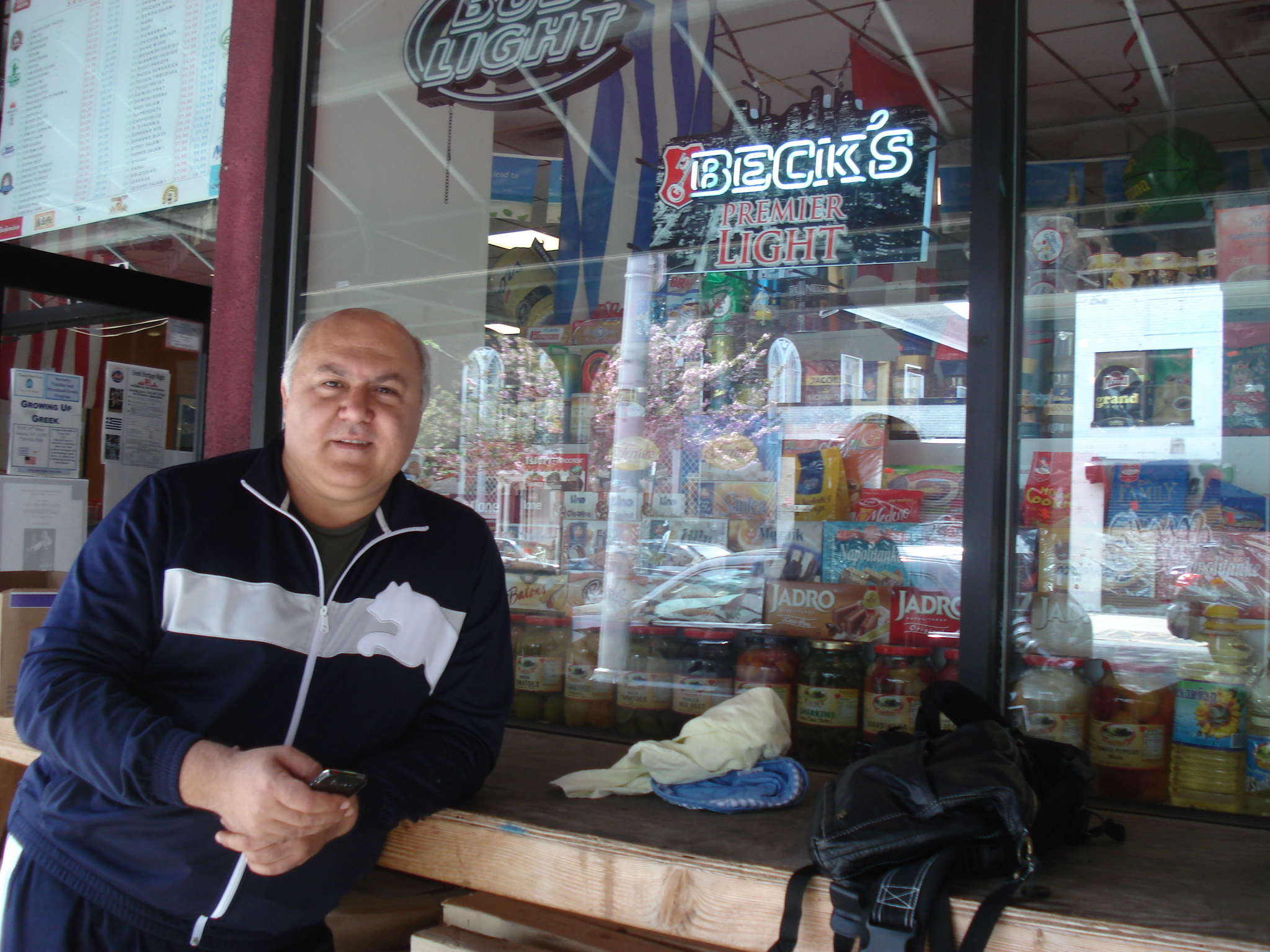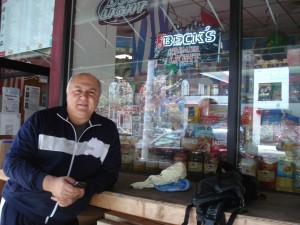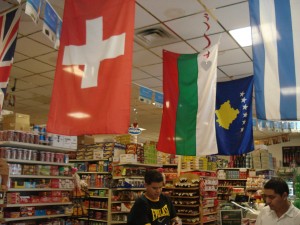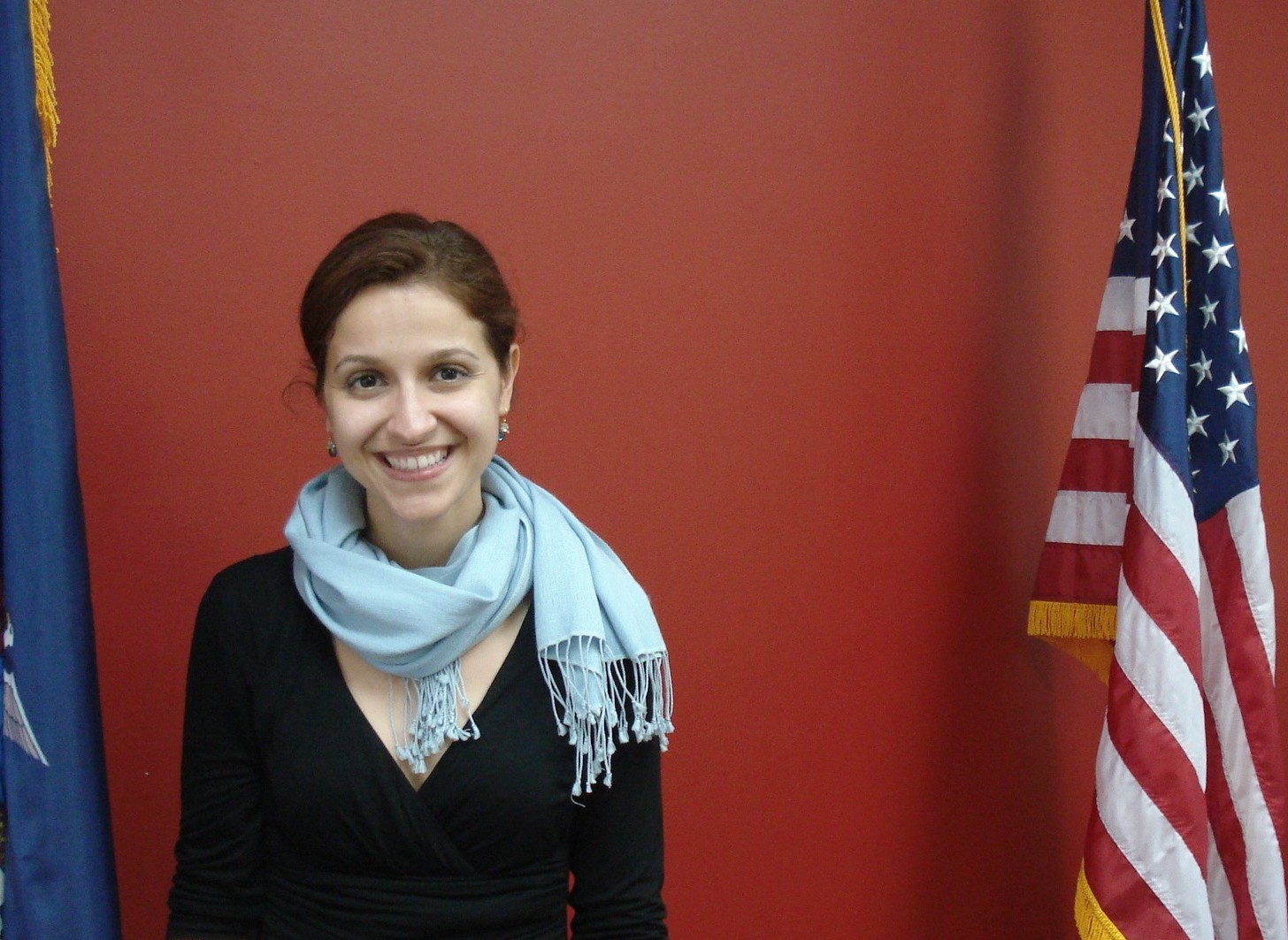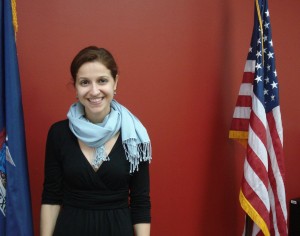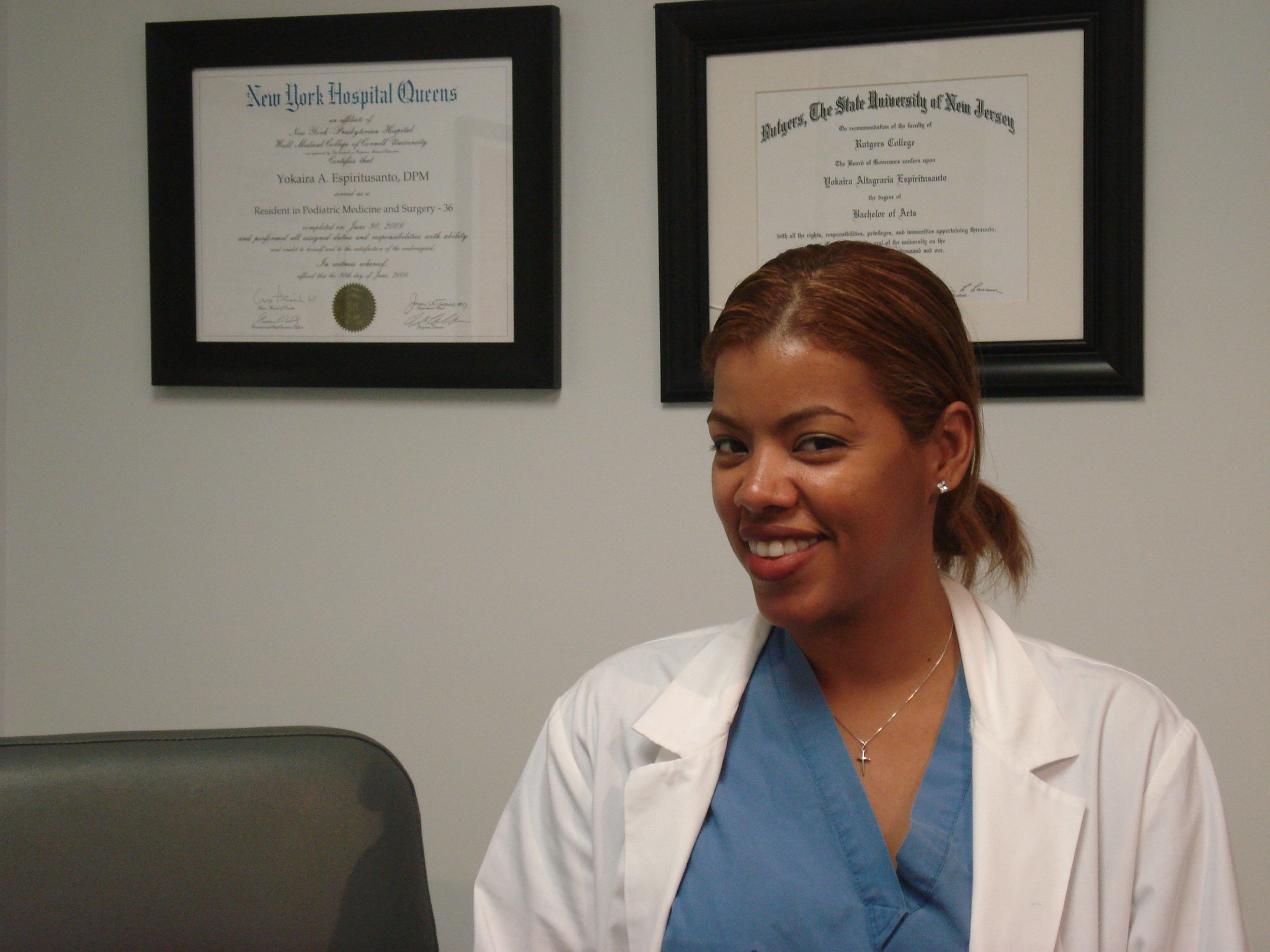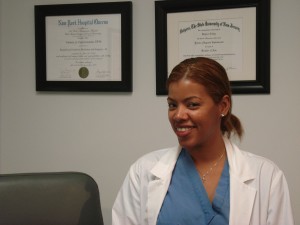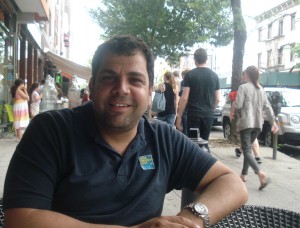
On June 18, Jerusalem Nights restaurant on Steinway a couple of blocks up from 30th Ave was packed with people listening to readings in Arabic and English, for the event “Cairo Connections: One city, many voices.” It was hosted by QUILL (“Queens in Love with Literature”). The Middle Eastern décor was densely layered with stars and stripes banners, flags and shiny tinsel in preparation for the approaching Fourth of July holiday.
Towards the end of the event Rami Nuseir, Director of the American Mideast Leadership Network, thanked everyone for coming to this corner of Astoria that is often referred to as “little Egypt”. His organization had found the venue for the event, one illustration of the many ways that it strengthens connections between people, languages and cultures. A week later I met Rami for this interview at Grand Cafe on 30th Ave.
Rami, now 38, was born in Nazareth. At seventeen he moved overseas, living in Belgium, London and San Diego before settling in New York. “I hope that New York is my final destination,” he says. “This is home for me. When the plane lands at JFK I feel that I’m home.”
He still goes to Nazareth twice a year though, where his mother and other family members still live. “I love my hometown. It’s important to keep connected, not to disconnect.”
Before founding the American Mideast Leadership Network Rami, who is a lawyer, worked as Legal Counsel to non-profits. The idea for his own organization took root soon after 9/11. He was in Jordan, and a friend who worked at the US embassy invited him to give a lecture to a group of high school students about Arabs in America post 9/11.
“I realized how misinformed they were about us,” he says. “The same way that general Mid-Western American society is misinformed about the Middle East. A lot of people in the Middle East thought that Middle Easterners here in the USA were living in cages. They thought that after 9/11 we were all being followed around at rifle-point by people who wanted to jail us. I started thinking about how that could change.”
Rami had also seen that Middle Eastern youth in the US were feeling lost after 9/11 and needed support. So he set up his non-profit to address those needs: to empower Middle Eastern youth living in the USA, and to promote understanding between people in the US and the Middle East.
One of American Mideast Leadership Network’s programs is called “Grassroots Diplomacy.” In 2007, Rami took a group of US students to Syria, where they stayed with Syrian students. “The idea is for people to learn first-hand, away from the influence of the media or politicians, or people who are partial, and let them see the reality for themselves,” he says.
He recently spent a year developing contacts in Libya to do a similar project there. The group was all set to fly at the end of May but given the current conflict they have had to put the plan on hold. Rami hopes that Libya emerges peaceful and able to rebuild, and that the project will still happen in the future.
In the meantime, he is taking a group of students to Nazareth in Galilee, in August. “In the group there’s a white guy, a Colombian, an East Asian, a Pakistani, a white girl…I’m trying to show that America is not a homogeneous society,” Rami says.
“I’m proud to be taking students to my hometown. That gives it a different feeling. They’re going to have a blast but they’re also going to learn a lot. The programs I build are educational so they’re not going to be wasting time, they do their homework.”
One of the purposes of the trip is to educate Americans about the Arab Muslim and Christian population in Israel. Rami says: “The main misconception is that we don’t exist. Many people do not know that there are Arabs living in Israel. There are 1.4 million Arabs, of which 1.5% are Christian.” (Rami is Christian).
He adds that educating Arab-Americans about the Palestinian population of Israel is important too. “The moment they hear Israeli, they kind of shut down and want to hear nothing about it.”
Soon after he established the American Mideast Leadership Network the organization evolved to address other pressing needs in Astoria, beyond problems specific to youth. The economic downturn meant that more than ever, recently-arrived immigrants needed help with finding jobs. The organization helps people to do job searches, write resumes and manage finances, and it provides English lessons. As Rami puts it, “things that can really put food on the table.”
He says that recent immigrants can have real trouble understanding the US job market. “In the Middle East, you often get a job by calling up and saying ‘my uncle told me to call you, do you have a job for me?’ That’s changing now, but still most of the people who use our services have zero knowledge about how to job-hunt here in the US.
“We have to educate them on every step of the process: you look for a job, you send a letter and your resume, you go for an interview.” He says that one of the most satisfying aspects of his work is when he finds someone a job.
Disappointment-management also comes into it. Some of the people he helps have arrived with green cards that they obtained through the Green Card Lottery system. “There’s a guy here who came from Morocco, where he was working for Mercedes and making good money,” says Rami. “He was married and with a kid and very financially stable. Then he won the green card lottery. Suddenly ‘America’ controlled his way of thinking. And so he and his family moved to the US. He regrets it because now he’s working as a waiter somewhere. We are trying to help him with work but there are the major challenges of language and navigating the system.”
Rami has to work hard to communicate the services that his non-profit provides, and convince people of why he wants to help. “When I advise people on options for free health insurance, or offer a seminar that I don’t charge for, they say ‘why, why?’ and run away. Look what’s happening in Egypt and elsewhere. People lived under repression for much too long.”
Since November 2010, Rami had visited Egypt, Tunisia, Libya and Syria. Some friends joked with him that he had something to do with triggering the revolutions in those countries. “I replied that I was privileged and lucky to visit those places just before the revolution.” He says that there was an amazing spirit on Astoria’s Steinway Street when Mubarak was overthrown, along with some wishing among Egyptians that they could be in Egypt to experience it.
When Rami first came to New York he lived in Manhattan, but he was drawn to Astoria. “I love the Greeks, the Latins, the Russians, the Brazilians. In Manhattan, especially when you work there, it’s very robotic. Here you can sit and chill and enjoy things, and walk from one place to another.” Astoria, he says, it like a bottle of wine, getting better as it ages.
As well as activities in their offices – from the English classes and financial training, to a new program of Arabic classes, to hosting a group of Egyptian intellectuals who met on Twitter and gather there for discussions – American Mideast Leadership Network organizes events out and about in Astoria. On the same day as the QUILL readings at Jerusalem Nights, they were holding an Egyptian dancing event at the Queens public library on Broadway, and an education event at the library’s western Astoria branch.
In July last year, they organized an Arab Heritage Week Festival in 30th Ave’s Athens Square with music, dancing and food vendors. Rami is planning to hold a similar festival this fall. “We face a bit of resistance over the event, even from our community,” he says. “There are people who have a conservative view of things, so putting together music and dance on the street isn’t very appropriate.
“My answer to them is ‘welcome to America. The dancing is cultural, respectful. Thank you for your opinion but Queens is the most diverse place in the United States – we need to celebrate our culture and heritage.’”
Rami says the network aims to be very clearly secular – welcoming everyone and not being influenced by one particular religion – and also to have no tolerance for racism. Sometimes, he says, “our community can be divisive and territorial within itself. You know, there’s a myth about the fact that we are all Arabs. We are not. We are 22 different nations, 22 different cultures. We speak the same language but we are very different.”
